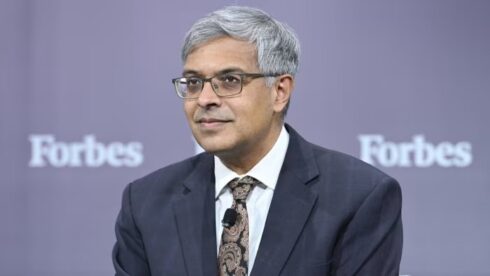President-elect Donald Trump has announced the appointment of Dr. Jay Bhattacharya, a Stanford University-trained physician and economist, as the new director of the National Institutes of Health (NIH). The NIH, regarded as the world’s largest government-funded biomedical research organization, plays a crucial role in shaping the United States’ public health policies and medical advancements.
Bhattacharya rose to prominence during the Covid-19 pandemic for co-authoring the Great Barrington Declaration, an open letter that strongly criticized widespread lockdowns. The declaration advocated focusing resources on protecting vulnerable populations while allowing the rest of society to function with minimal restrictions. This approach was widely disputed by public health officials, including then-NIH Director Dr. Francis Collins, who dismissed the authors as “fringe experts.” Trump praised Bhattacharya’s “bold and innovative thinking,” adding that his leadership would restore the NIH’s reputation and focus on addressing America’s chronic illness crisis.
Trump’s Vision for Public Health Leadership
Trump’s nomination of Bhattacharya completes his public health team as he prepares to take office on January 20. Earlier in the month, he tapped Robert F. Kennedy Jr. to lead the Department of Health and Human Services (HHS), sparking debate due to Kennedy’s vaccine skepticism. Despite criticism from medical experts, Kennedy’s advocacy for stricter regulation of food and pharmaceutical safety has garnered bipartisan praise.
In a statement, Trump expressed confidence in the collaborative potential of Bhattacharya and Kennedy, describing their mission as restoring trust in U.S. health institutions. Bhattacharya echoed this sentiment on X, formerly Twitter, stating, “We will reform American scientific institutions so that they are worthy of trust again and will deploy the fruits of excellent science to make America healthy again!”
Controversial Picks Reflect Trump’s Public Health Agenda
Trump’s health agency appointments indicate a broader effort to overhaul the nation’s public health approach, with several nominees sharing a critical stance on pandemic-era policies. For example, Trump has nominated Marty Makary, a Johns Hopkins surgeon who opposed Covid-19 vaccine mandates, to lead the Food and Drug Administration (FDA). Similarly, former congressman Dr. Dave Weldon, a skeptic of vaccine safety, has been selected to head the Centers for Disease Control and Prevention (CDC).
These appointments, along with Bhattacharya’s NIH nomination, suggest a significant shift in federal health policy, prioritizing personal freedom and targeted protection over widespread mandates. However, the nominees’ confirmations will require Senate approval, where their controversial records may face scrutiny.
Mixed Reactions from Conservatives and Allies
While many Trump allies have welcomed his appointments, some conservatives have expressed reservations. For instance, Dr. Janette Nesheiwat, nominated as Surgeon General, has drawn criticism from Trump supporters for her past comments supporting masking schoolchildren during the pandemic and opposing abortion restrictions.
Similarly, the inclusion of TV personality Dr. Mehmet Oz as administrator of the Centers for Medicare and Medicaid Services has sparked debate. Critics question whether Oz’s media background aligns with the responsibilities of managing critical healthcare programs. Despite these concerns, Trump’s health team reflects his commitment to reshaping U.S. public health policies, with a strong emphasis on reform and institutional accountability.
With his nominees representing a clear break from traditional health agency leadership, Trump’s selections signal a transformative era in public health governance. However, their success will depend on overcoming Senate resistance and addressing the polarized views on their qualifications and stances.
However ability to navigate the resistance of house of senate for confirmation will provide robust platform for Trump administration to achieve quality health services delivery that is affordable to alot of Americans which will definitely have strong impact on the well-being of alot of people














